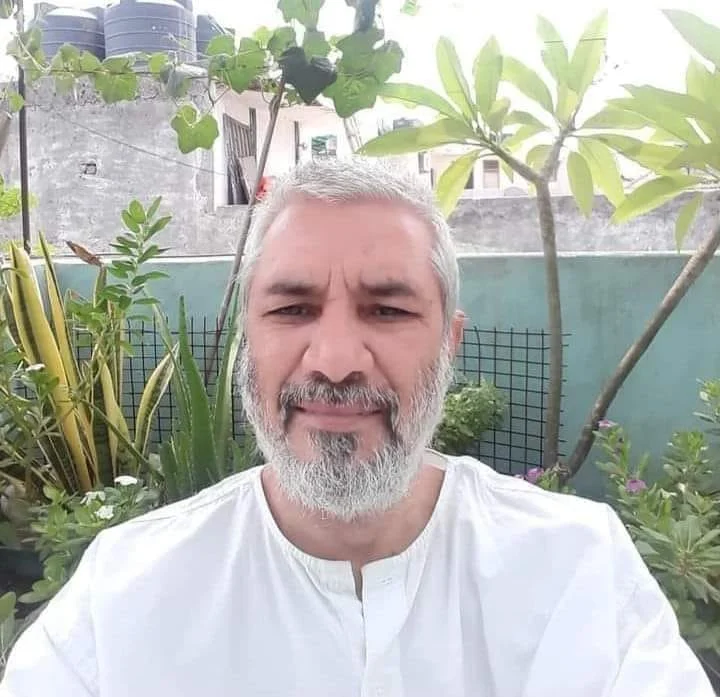Dr. Abdul Rashid Agwan,a writer, thinker and social activist, passed away on August 17, 2024. He was residing in Nimbahera, Chittorgarh after more than 40 years of his stay in Delhi. He was born on11 Mar 1954 in Gangrar, Chittorgarh, Rajasthan. He was awarded an Honorary Doctorate Degree by Mother Teresa University, Bangalore. He did MSc (Zoology), Udaipur University and BSc (Biology), University of Rajasthan. He received Junior Research Fellowship and Senior Research Fellowship of Council of Scientific and Industrial Research (1977‐79). He has worked as Assistant Professor (Zoology), Vidhya Bhawan Rural Institute, Udaipur, and as Technical Manager, Rajasthan Paste Control, Jaipur.
His area of research and writing focused on education, Islamic history, astronomy, public policy and literature. He had a great interest in monitoring of implementation of Sustainable Development Goals, analysing public policy and government budgets.
My association with him has been extremely productive in terms of budget advocacy with the government, parliamentary, media, community and grassroots leaders. He was very passionate to promote research, training and capacity building and policy advocacy along with community services. He wrote 50 research papers and 60 articles in his lifetime.
He authored more than 16 books and some of the major books include Shaka(2024), Clinching Evidence of Ayodhya(Intimate Publications, 2018), The Spine Ward – Tragedy of an Innocent Fever(My Books, 2018), Islam in 21st Century: The Dynamics of Change of Future‐making(2014), A Guide to Uplift Minorities, 2008‐2010, Islam and the Environment(Genuine Publications, New Delhi; 2 editions, 1999 and 2017).
He has authored three major reports on Minority Girls’ Education (2012), National Commission for Minority Educational Institutions, Ministry of Human Resource Development, Government of India and Report on the Status of Urdu in Schools and Administration of Delhi (2013), sponsored by Delhi Minorities Commission, Government of Delhi and Report on Muslims of Delhi – A Study on their Socio‐Economic and Political Status.
He was President of Institute of Policy Studies and Advocacy; Secretary, All India Educational Movement; President, Universal Knowledge Trust, New Delhi; Director, Centre for Advancement of Voluntary Efforts ‐ CAVE, New Delhi; Convener, Volunteers of Change, New Delhi; Chairman, Milli Education Trust, New Delhi; Executive Member and Honorary Trustee, Foundation for Social Care, Lucknow: 2004; Advisor, Delhi Minority Commission, 2018; State President (Delhi), All India Muslim Majlis‐e‐Mushawarat, New Delhi: 2014‐2018; Member Udaipur Environment Group: 1977‐1981;and Member Institute of Objective Studies.
He has inspired and groomed the younger generation immensely. In the words of Dr. Ghazala Jameel, Assistant Professor at JNU, “He was a very generous intellectual and I have been a recipient of his generosity. He organised the first panel discussion on my book Accumulation by Segregation at the Mushawarat office and provided me with numerous platforms within community-based organizations and academia to share my work. He never spoke to me in a patronising tone and was generally very soft-spoken. He was one of very rare people I know who don’t seem to have a hidden agenda or do not see any need to camouflage their agenda behind strategy. All his concerns were public and straightforward. I used to text him often about Delhi/Jamia Nagar related issues until his health problems took him away from Delhi to his hometown. I used to share my questions and concerns with him sometimes as a way of straightening the thread of my arguments. His responses and even his silences were always well considered. An activist-intellectual Agwansahab will greatly be missed by the Delhi and Jamia Nagar civil society.”
According to MahtabAlam, a journalist working with National Foundation for India, “Agwansahab was a master trainer, educationist, human rights activist, community organiser, development professional, writer, and above all, an amazing human being. Over the years, we had come together to work on multiple occasions – from conducting workshops for para-legal workers and people interested in human rights to carrying out fact-finding missions to organising several meetings to promote voluntary/community action, etc. Much of what I am able to do today in different capacities is learnt from working with people like him. I will always be indebted to him for providing the support and encouragement that he did early in my career.”


